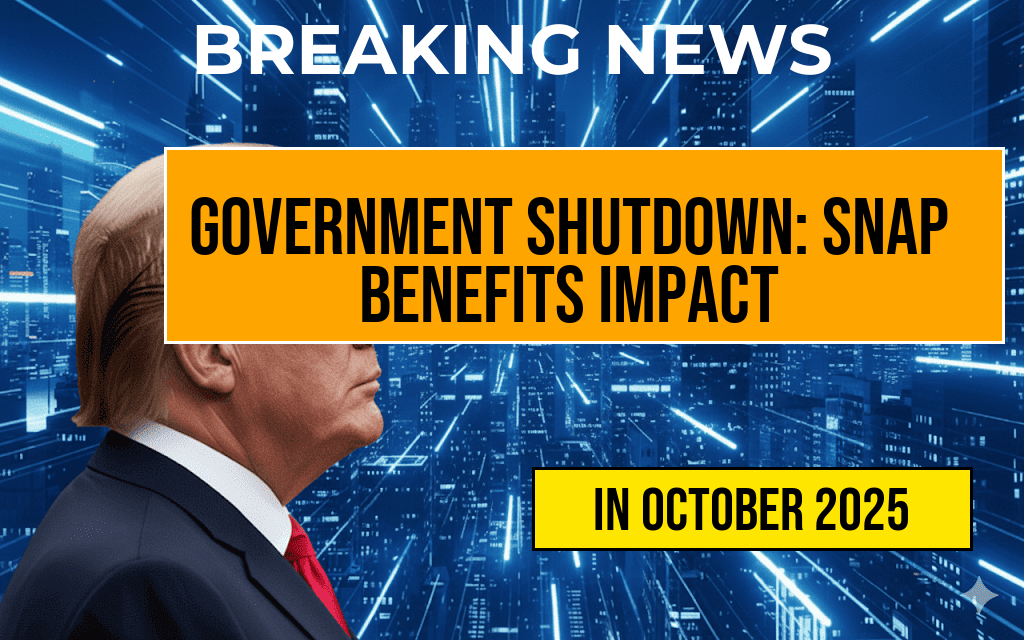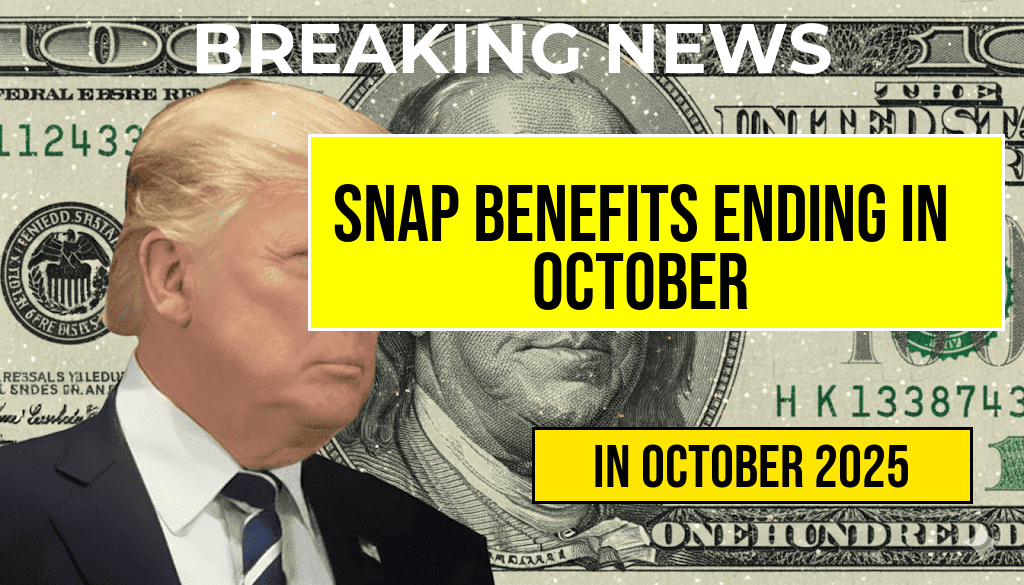The looming threat of a government shutdown has many Americans concerned about potential disruptions to vital social programs, especially SNAP (Supplemental Nutrition Assistance Program) benefits and food stamp assistance. Should a shutdown occur, millions of low-income families across the country could face delays or reductions in their monthly food aid, exacerbating food insecurity during a challenging economic climate. While policymakers debate funding measures, the immediate impact on SNAP recipients hinges on whether federal agencies can continue operations and disbursements without interruption. Historically, government shutdowns have led to partial or complete pauses in program payments, with vulnerable populations bearing the brunt of these disruptions. As negotiations continue, understanding the potential implications for SNAP benefits becomes crucial for affected families and community advocates.
Impact of a Government Shutdown on SNAP Funding
How SNAP Benefits Are Funded and Distributed
The SNAP program is administered jointly by the U.S. Department of Agriculture (USDA) and state agencies. Federal funding is allocated annually through the appropriations process, and benefits are typically disbursed monthly via Electronic Benefit Transfer (EBT) cards. These funds are used to purchase food at authorized retailers nationwide. Because of this structure, the continuity of SNAP benefits depends heavily on federal appropriations and the operational status of USDA and related agencies.
Potential Disruptions During a Shutdown
If Congress fails to pass a funding measure before a shutdown begins, USDA and other federal agencies involved in SNAP administration could face staffing shortages and operational halts. This may lead to:
- Delays in benefit issuance: Recipients might experience late payments or temporary suspension of benefits.
- Reduced access to program resources: Some local offices could close or limit services, complicating eligibility renewals or reporting requirements.
- Uncertainty over continued eligibility: Without federal oversight, states might struggle to process new applications or verify existing benefits, risking disruptions for beneficiaries.
Historical Precedents and Known Outcomes
Previous shutdowns, notably in 2013 and 2018-2019, offer insight into potential consequences. During the 2013 shutdown, USDA announced that SNAP benefits would continue to be issued as usual, since funding was considered continuous under existing appropriations. However, in the 2018-2019 impasse, some states reported delays in processing renewals and new applications, although benefit payments largely continued because of existing funds and emergency measures. These instances underscore that while direct benefit payments often persist temporarily, ancillary services and administrative functions are more vulnerable to disruption.
Implications for Food Security and Vulnerable Populations
Food Security Risks During a Shutdown
For many families relying on SNAP benefits, even brief delays can lead to increased food insecurity. The Feeding America network estimates that nearly 13 million children depend on SNAP to meet their nutritional needs. Disruptions threaten to undermine their access to consistent, healthy meals during critical developmental periods.
Community and Nonprofit Responses
Local food banks and community organizations often prepare for potential gaps in federal assistance by increasing outreach and supplemental distributions. However, their capacity to bridge nationwide lapses remains limited, especially if the shutdown persists for an extended period. Advocates warn that prolonged delays could lead to increased reliance on emergency food services, strain on charitable resources, and heightened hardship for low-income families.
Policy Considerations and Future Outlook
Legislative Efforts to Protect SNAP Benefits
Many lawmakers emphasize that critical social programs like SNAP should be insulated from political impasses. Some have called for continuing resolutions or emergency funding measures explicitly exempting food assistance programs from shutdown effects. Yet, the degree of success depends on bipartisan negotiations and the broader budget landscape.
Potential for Emergency Measures
In past shutdowns, USDA and other agencies have occasionally employed emergency authorities to ensure continued benefit distribution. These measures include using existing funds or leveraging contingency funds to sustain payments temporarily. Still, such steps are not guaranteed and often provide only short-term relief.
Resources for Affected Families
| Agency/Organization | Contact / Information |
|---|---|
| USDA Food and Nutrition Service | fns.usda.gov |
| Local SNAP Offices | Contact via state-specific resources listed on FNS State Information |
| Food Banks and Community Outreach | Visit Feeding America for local assistance options |
As negotiations unfold, it remains uncertain whether a temporary or longer-term shutdown will occur, but the potential impacts on SNAP beneficiaries highlight the importance of policy safeguards. For millions dependent on food assistance, timely communication and contingency planning by federal and community agencies will be vital to mitigate disruptions and ensure continued access to essential nutrition support.
Frequently Asked Questions
What is the Government Shutdown and how does it affect SNAP Benefits?
A government shutdown occurs when federal funding is temporarily halted, leading to the suspension of various government services. During a shutdown, SNAP Benefits may be impacted, potentially causing delays or interruptions in food stamp assistance for eligible recipients.
Will SNAP Benefits be automatically renewed during a government shutdown?
Typically, SNAP Benefits are renewed automatically, but a government shutdown can disrupt this process. Recipients should check with local agencies to confirm whether their benefits will continue without interruption during the shutdown.
How long can SNAP assistance be affected during a government shutdown?
The duration of SNAP assistance disruption depends on the length of the government shutdown. Short-term shutdowns may have minimal impact, while prolonged closures can lead to significant delays in benefit distribution.
Are there any emergency food assistance options available if SNAP benefits are delayed?
Yes, during a government shutdown, some states may provide emergency food assistance or supplements through local programs or charitable organizations to help those in need while SNAP benefits are temporarily unavailable or delayed.
What should SNAP recipients do if their benefits are interrupted due to a government shutdown?
If your SNAP benefits are interrupted, contact your local SNAP office or agency for guidance. It’s important to stay informed about updates from official sources and explore alternative resources for food assistance if needed.






